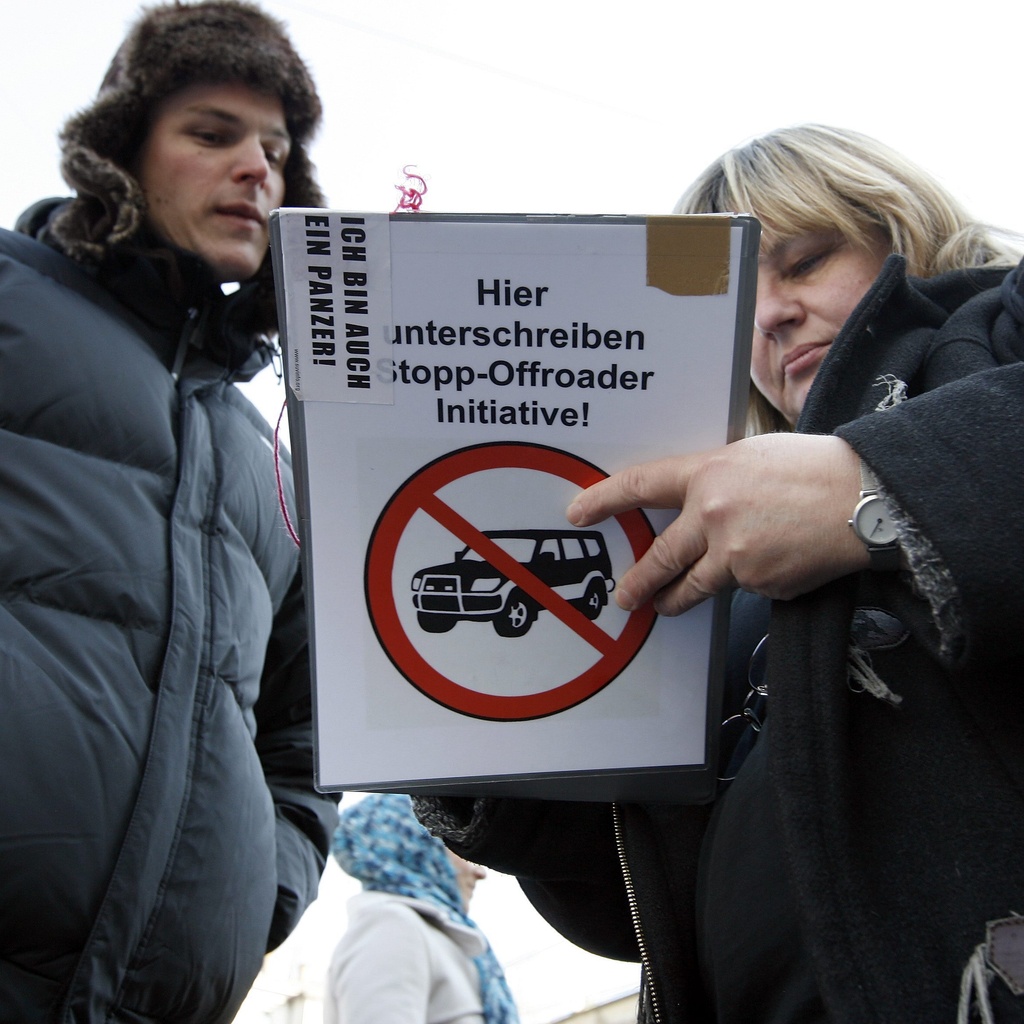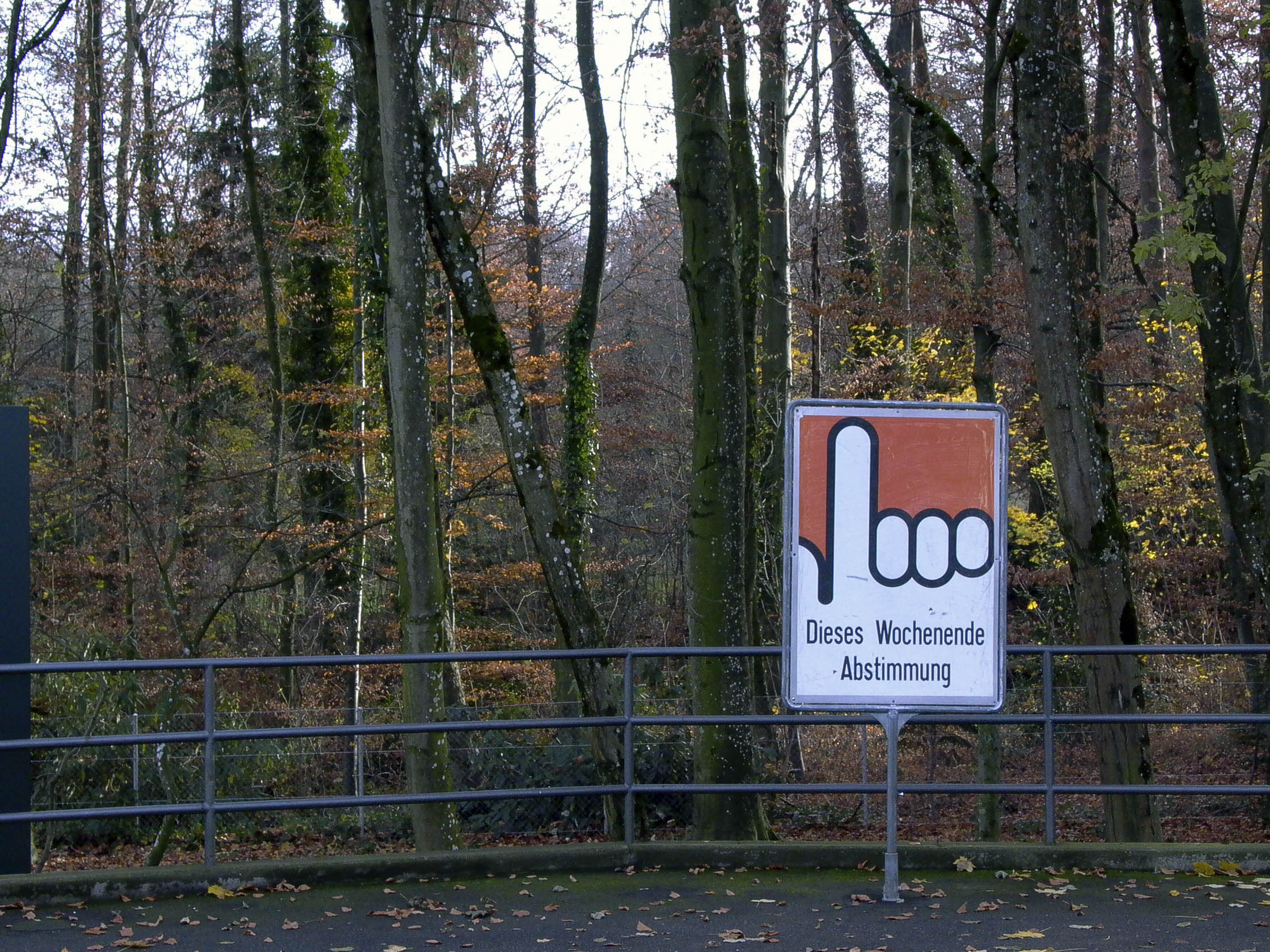The Swiss have a vote for it

Direct democracy is as attractive as ever in Switzerland, with 23 nationwide people’s initiatives launched in 2011, a record number.
The initiative is a core component of Switzerland’s political system. It is a way of enabling any citizen to propose new legislation, although in practice it is a tool used by political parties and interest groups.
For an initiative to be put to the vote at federal level its supporters have 18 months to collect at least 100,000 signatures from citizens with the right to vote.
Six launched in 2010 are still circulating, seeking the requisite number of signatures before their deadline expires.
In theory, an initiative can only deal with constitutional matters, but in practice they are being used more and more to set the policy agenda – and are becoming more and more frequent.
Andreas Auer, director of the Aarau-based Centre for Direct Democracy told swissinfo.ch earlier this year that one reason for the increase was the “radicalisation of political discourse”, particularly at the extreme ends of the political spectrum.
And Aline Trede of the Green Party explained that simply putting forward an initiative got people talking about issues, which in turn could prompt action by the government or parliament, even if the initiative itself failed.
Raising profiles
The record number of initiatives in 2011 can be explained, at least in part, by the fact that this was an election year: initiatives raise the profile of parties and enable them to publicise their policies.
Many of them focused on one of three areas: social policy, energy and immigration.
And various events have thrust some issues into the public consciousness, most notably the nuclear disaster at the Fukushima nuclear plant which sparked concern about Switzerland’s energy policies, and the ongoing economic crisis.
Two very similar initiatives calling for a ban on nuclear power production came from the Green Party on the one hand, and a committee called “Nuclear power plants must be switched off” on the other.
Other environmental initiatives have included one from the centre-left Social Democratic Party known as the “cleantech initiative”, which foresees the creation of more jobs thanks to the use of renewable energies, and one from the Liberal Greens – a relatively new centre party – who want an energy tax to replace Value Added Tax.
Economic situation
The economic situation has prompted initiatives from several quarters.
The Social Democrats have got together with trades unions to call for a minimum salary, which would ensure that anyone in full time work earned enough to live on.
In conjunction with the Greens and various organisations the party has already collected enough signatures to put reform of health insurance to the voters.
The centre-right Christian Democrats have put forward two initiatives aimed at easing the tax burden on families, and have joined centre left and Christian parties and groups in calling for large inheritances to be taxed in order to finance the retirement fund.
Immigration
Halting immigration is the theme of a number of initiatives. The best known – because backed by ubiquitous posters showing a pair of feet marching determinedly over a Swiss flag – is a call by the rightwing People’s Party under the name “Against mass immigration”.
Another, launched by a specially formed committee and entitled “For the stabilisation of the overall population”, wants the government to ensure that the number of foreigners settling in Switzerland does not exceed the number leaving.
But there are also initiatives launched by committees and organisations covering issues ranging from the abolition of the radio and television licence fee to tax deductions for people who turn out to vote, to the protection of large predators.
Many a slip
By no means all the initiatives that are launched make it to the vote. Many fail to gather the requisite number of signatures, and others are withdrawn for various reasons.
And of those that do make it to the ballot box, the vast majority are rejected: overall the success rate has been just over ten per cent.
Nevertheless, the figures show the upsurge in the popularity of the initiative in the past two decades. In the first century of its existence, from1891 to 1990 nine were adopted – the same number as in the period 1991 to 2010.
Some recent initiatives have raised legal problems that have not yet been resolved. What happens if they are not compatible with binding international agreements that Switzerland has signed?
At the moment the only grounds on which an initiative can be declared invalid before a vote is held is if it violates “peremptory norms”, in other words norms which are obligatory under international law. These include such things as the prohibition of crimes against humanity, genocide, slavery and torture. But other aspects of international law – such as international treaties – are not covered.
The initiative to stop mass immigration, for example – which still has just over a year to gather signatures – would violate the bilateral agreements between Switzerland and the European Union, and almost certainly lead to the scrapping by the EU of the entire package, which covers a number of completely unrelated items.
Legal difficulties already beset the implementation of the initiative on the automatic expulsion of criminal foreigners, approved in November 2010. The failure of an expert commission set up by the justice ministry to agree on this has led to the People’s Party announcing that it will launch a second initiative on the same issue in January.
Any Swiss citizen or organisation can put forward a proposal to amend the constitution, but it takes a long time to get this so-called people’s initiative to the ballot box.
If supporters can collect and hand in to the Federal Chancellery at least 100,000 signatures in favour of the amendment within 18 months, it must be put to a nationwide vote.
The cabinet then discusses the initiative and within one year must agree on a united position and a detailed message to present to parliament on the issue.
Parliament then discusses the initiative and recommends to the people and to the cantons whether it should be adopted or rejected.
A people’s initiative needs a majority of the popular vote as well as the backing of a majority of the country’s 26 cantons to become law.
The Swiss system of direct democracy distinguishes between initiatives and referenda.
Referenda are used to challenge laws which have already been passed by parliament.
Anyone wanting to call a referendum must collect at least 50,000 signatures within 100 days of the law being published.
Unlike a people’s initiative, a referendum needs only a majority of popular votes.

In compliance with the JTI standards
More: SWI swissinfo.ch certified by the Journalism Trust Initiative





You can find an overview of ongoing debates with our journalists here. Please join us!
If you want to start a conversation about a topic raised in this article or want to report factual errors, email us at english@swissinfo.ch.